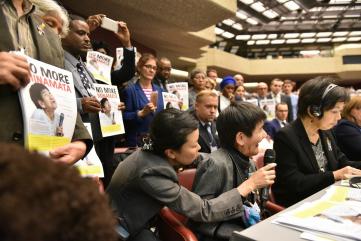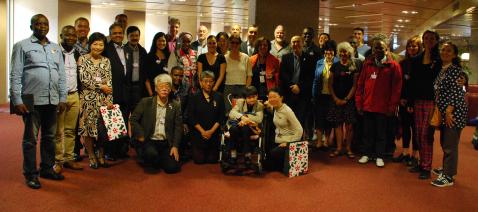29 September, 2017
Is Minamata Only for Gold?
Today IPENers asked delegates: Is Minamata Only for Gold?
With the focus on gold at the Convention, IPEN would like to remind the delegates about other aspects of the Convention that must be addressed, such as mercury waste, coal-fired power plants' contribution to mercury pollution, mercury in products, human rights and more.
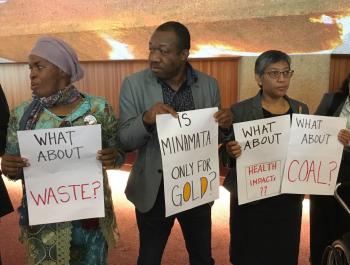
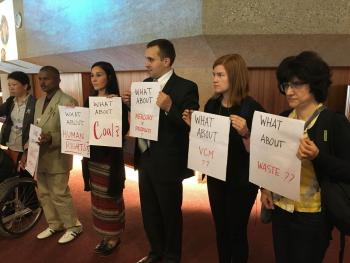
28 September, 2017
IPEN COP1 Bulletin for High Level Delegates
IPEN had an opportunity to get samples of hair from some High Level Delegates that attended a breakfast at the conference venue this morning. As we met the High Level Delegates, we shared with them a bulletin about some work IPEN has been doing at the COP1 and also about the recent Mercury in Women of Child-bearing Age in 25 Countries study.
See the bulletin here.
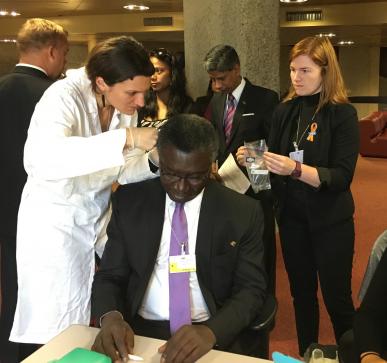
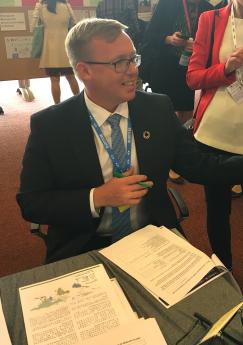
28 September, 2017
What if the fish you ate was polluted by mercury?
IPENers served tuna fish snacks to delegates to raise awareness about mercury content in fish-an essential part of many diets around the world. Recently, IPEN published a report monitoring mercury levels in women of child-bearing age in the Asia and the Pacific region, where fish diets are prevalent. This report revealed that women of child-bearing age, living in four Pacific Island countries, have elevated levels of mercury in their bodies. The women tested aged between 18 - 44, from Cook Islands, Marshall Islands, Tuvalu, and Kiribati, and two landlocked Asian countries, Tajikistan and Nepal. At Mercury Treaty COP1, IPEN presented these results to delegates on a silver platter. In a more recent global report, IPEN and BRI (Biodiversity Research Institute) gathered hair samples from women of child-bearing age in 37 locations, across 25 countries, on 6 continents. It was found that 42% of the 1044 women sampled had average mercury levels over the US EPA health advisory level of 1ppm.
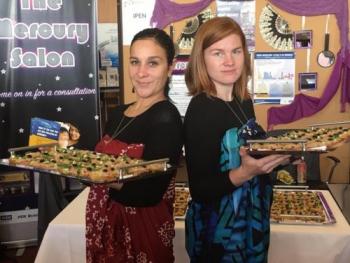
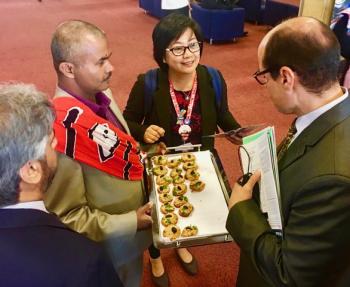

26 September, 2017:
IPEN Raises Awareness about Mercury in Skin Cream
IPEN held an action to raise awareness about mercury content in some skin creams, particularly skin-lightening creams. Representatives in salon capes with face cleanser and shower caps spoke with delegates about the risks of using skin creams that contain mercury. Delegates and COP1 participants were encouraged to bring skin creams to the IPEN booth for mercury testing.
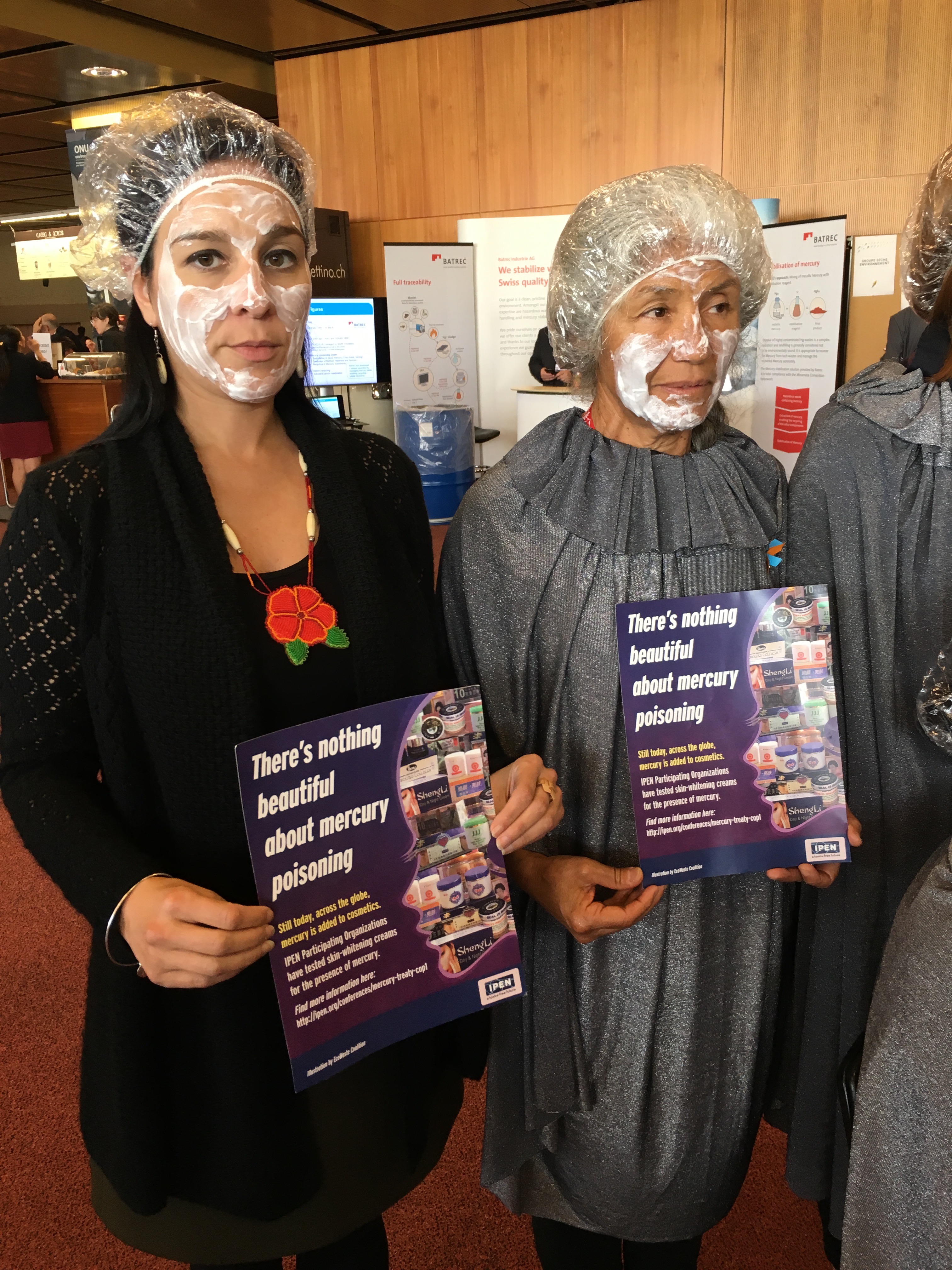
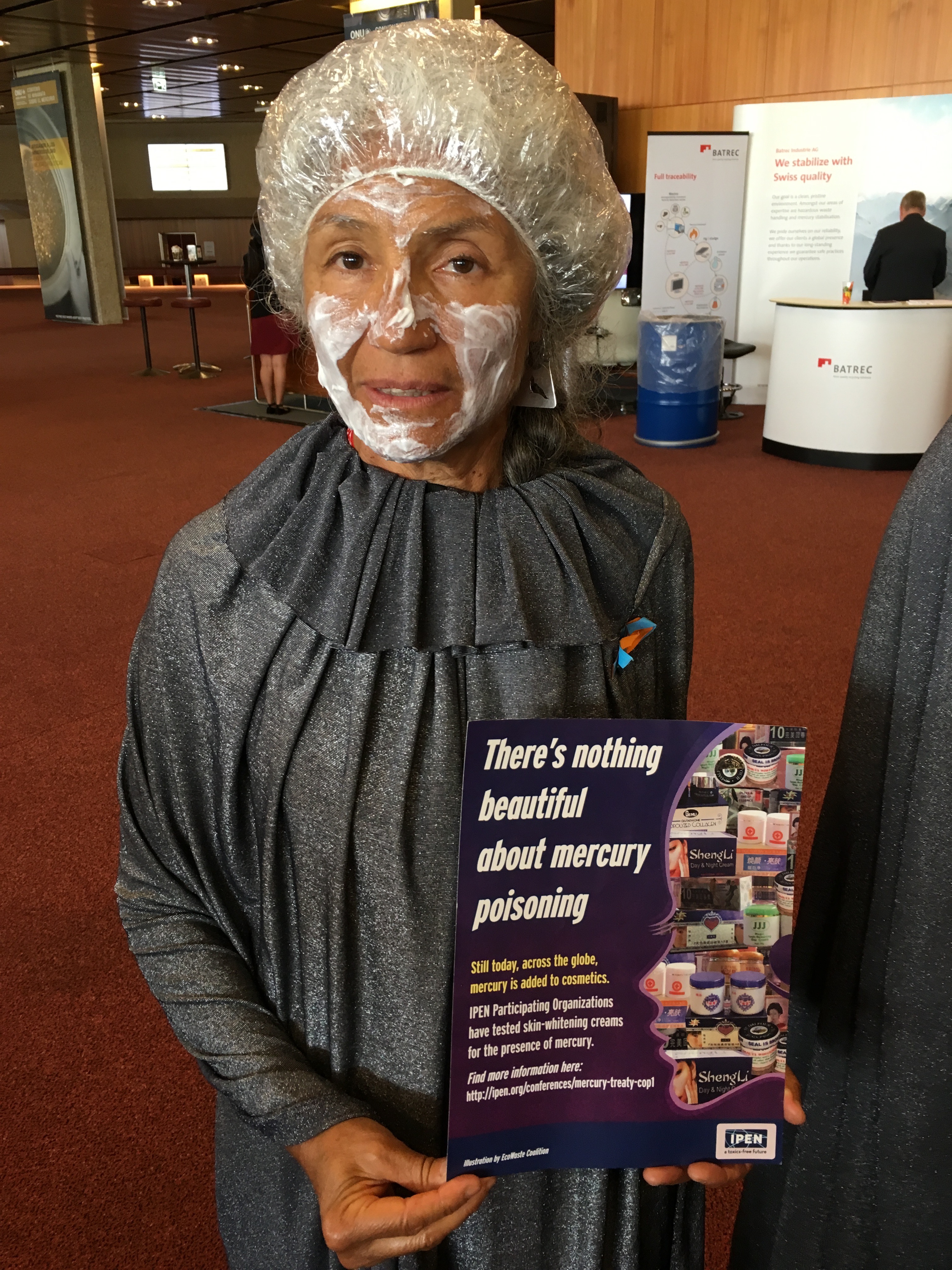
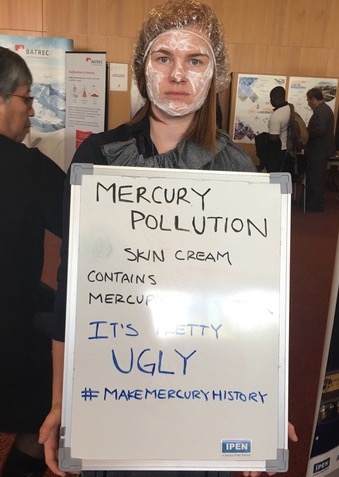
25 September, 2017:
IPEN Press Release: Minamata Disease and Mercury Pollution: Past, Present, and Future
Geneva Switzerland: IPEN, a global network of health and environmental NGOs, have brought together a mercury poisoning survivor from Minamata, Japan with researchers who have just exposed alarming levels of mercury in women of child-bearing age across the globe. Testimony was heard from Ms. Shinobu Sakamoto, who sustained significant neurological damage from in-utero mercury poisoning when her mother, like thousands harmed or killed by industrial mercury in Minamata Bay, consumed mercury-contaminated fish. Ms. Sakamoto called on government delegates to the Minamata Convention to take strong action to bring an end to global mercury poisoning and ensure there are no more Minamatas. Specifically, Convention delegates must end the global trade in mercury that is feeding small scale gold mining, drive down coal-fired power emissions and clean up contaminated sites. The Minamata Convention on Mercury commemorates the world’s most infamous mercury poisoning episode in Minamata Bay, Japan as a reminder of mercury’s devastating effects, and to catalyze action to prevent future Minamata disasters. Mr. Yoichi Tani, advisor for the past 40 years to a surviving community of Minamata Disease sufferers said, “Minamata is still a contaminated site. There are many Minamata disease victims struggling to be recognized and compensated. The situation in Minamata is not resolved.”
Read the entire press release here
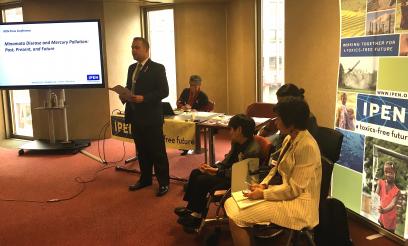
24 September, 2017
Minamata Disease survivor and activist Shinobu Sakamoto made an impactful opening statement on behalf of the Collaboration Center for Minamata Disease Victims, IPEN and Zero Mercury Working Group in plenary on the opening day of the conference. NGO colleagues stood behind her in solidarity as she made her statement, which called upon delegates to recognize that, although the Treaty is now in force, the work to address mercury pollution issues has just begun.
24 September, 2017
Hair sampling at the IPEN booth is underway! IPEN is taking hair samples from all those interested and sending them to Biodiversity Research Institute's laboratories for mercury analysis. Results will be complied and reported on at UNEA3.

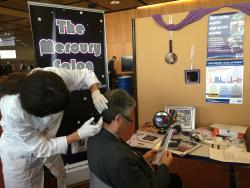
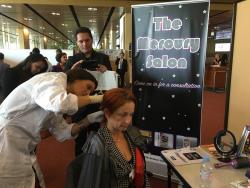
Some participants perused IPEN's Mercury Salon Magazine while they were getting their hair cut. This magazine is a compliation of various projects by IPEN and partners related to mercury in cosmetics.
23 September, 2017
IPEN will continue to support our colleagues from Japan as they state that Minamata Disease is Not Over Yet. Representatives from the Collaboration Center for Minamata Disease Victims (Minamata Disease Victims’ Mutual Aid Society) are in Geneva attending the COP1 and reitering their message of No More Minamata! "By agreeing to the Mercury convention and restricting the use of mercury all over the world, a tragedy like Minamata disease should never be repeated."
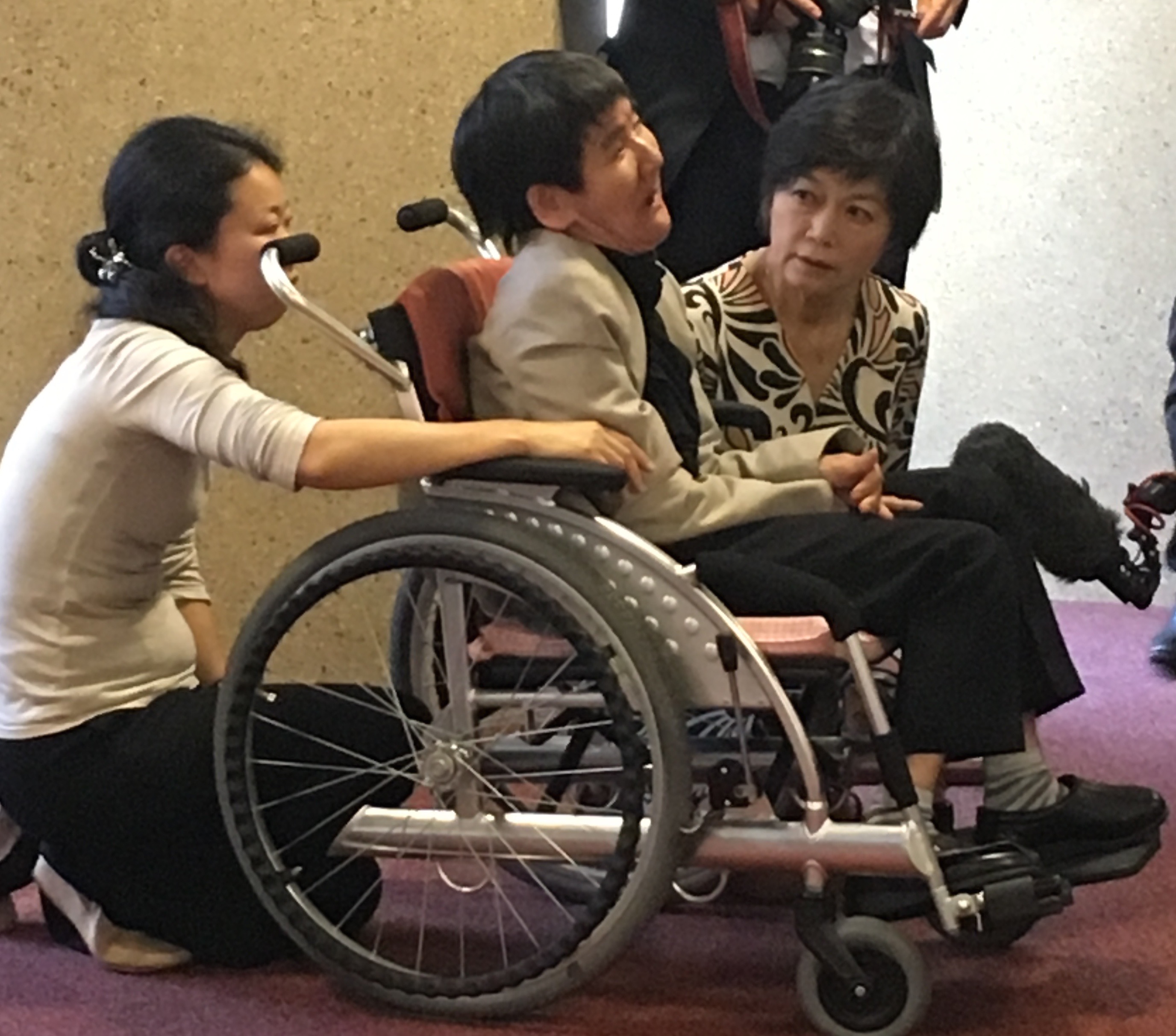
23 September, 2017
IPEN is participating in the 1st Meeting of the Conference of the Parties to the Minamata Convention on Mercury ("Mercury Treaty COP1") taking place from 24 - 29 September in Geneva, Switzerland.

